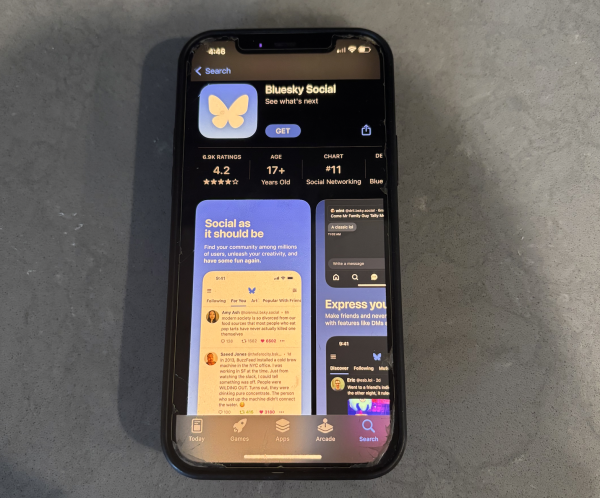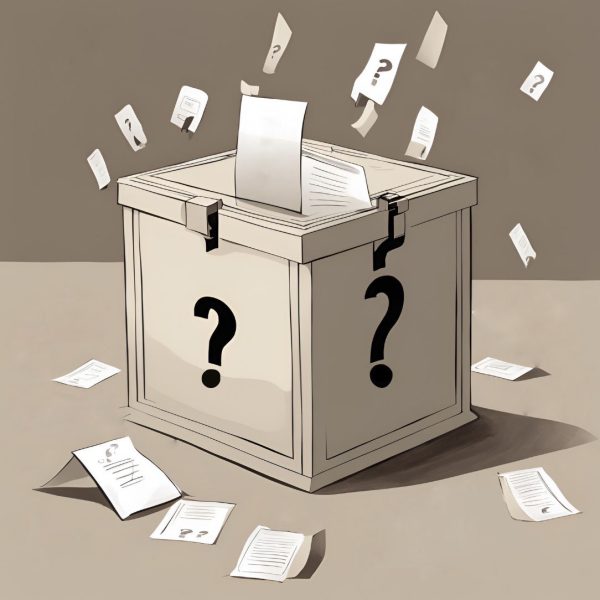Column: Rhetoric surrounding terrorism promotes Islamophobia

In this image the yellow and blue lines indicate the hegemony of powerful countries/regimes over weaker ones; indicated by the width of the lines. The larger green line is representative of the progress that could be made in the name of diplomacy by either regime. However, this progress (the green line) is stunted by the intolerance of the blue line(powerful regimes). The green line will never be whole until the blue and yellow ones cooperate with one another. Graphic illustration by Ciel Torres ’17
During the second presidential debate on Oct. 9, an audience member asked how either candidate would handle Islamophobia in the United States and make Muslim people feel safe in this country.
Trump remarked that in order to solve a problem one must be able to name it: “radical Islamic terror.”
This seemingly simple solution has massively detrimental ramifications with regard to domestic and international relations.
In early September, Tenzin Gyatso, the fourteenth Dalai Lama spoke at the European Parliament and explained the paradox of the phrase “Muslim terrorist.”
“That wording is wrong,” he said. “Any person who wants to indulge in violence is no longer a genuine Buddhist or genuine Muslim, because it is a Muslim teaching that once you are involved in bloodshed, actually you are no longer a genuine practitioner of Islam.”
Gyatso further explained that differentiating between fundamentalism and Islam was a key way to stop violence and strengthen integration. In doing this, he said, we can create civic harmony on the basis of mutual respect and pedagogy.
Fundamentalism is a form of religion that upholds belief in the strict, literal interpretation of its scripture. This is not true Islam.
Trump’s prevailing rhetoric around terrorism regards removing Muslim people in the country as a viable solution; and for many, this makes sense.
According to a study conducted by the Pew Research Center, 80 percent of registered voters see each candidate’s approach for handling terrorism as “very important” towards influencing their vote in this upcoming 2016 election. Furthermore, amongst registered voters, party affiliation aside and by a five percent margin, Trump is believed to be more capable of “defending future terrorist attacks.” While this simplistic solution to a complex global issue may seem comforting, the most salient response to this topic during the debate was Clinton’s.
She explained that she intends on defeating ISIS in coalition with Islamic nations, as they are not the same. Instead, she suggested that we are at war with violent Jihadist terrorists.
As explained by BBC News, the term “jihadist” is used as a way to “distinguish between violent and non-violent Sunni Islamists.”
They differentiate the two: “Islamists aim to reorder government and society in accordance with Islamic law, or Sharia. [Whereas] Jihadists see violent struggle as necessary to eradicate obstacles to restoring God’s rule on Earth and defending the Muslim community, or umma, against infidels and apostates.”
The misuse of “Islamist” is understandable, as ISIS does stand for Islamic State of Iraq and Syria. However, regardless of what said group chooses to call themselves, if the United States were to unilaterally or multilaterally face ISIS, labeling terrorist threats and attacks as “Islamic” will hinder our ability to forge diplomatic ties with Islamic states and other nations around the world.
This is not a matter of tolerance nor of creating discourse; rather it’s one of understanding how to have a more educated conversation. Demagogic rhetoric is never the answer. As explained in “The Basic Works of Aristotle”: “The best moment to employ interruption is when your opponent has so answered one question that the putting of just one more lands him in absurdity. In replying to questions, you must meet them, if they are ambiguous, by drawing reasonable distinctions.”
“Islamic terror” is an oxymoron. The imminence of terror by Jihadist terrorists is not, and is the appropriate label of said existential threat.
As translated into English from the Quran: “There shall be no compulsion in [acceptance of] the religion. The right course has become clear from the wrong. So whoever disbelieves in Taghut and believes in Allah has grasped the most trustworthy handhold with no break in it. And Allah is Hearing and Knowing“ (Quran, Surah Al-Baqarah 2:256).
Regardless of who wins the election next week, the day our next president labels the acts of ISIS as “Islamic” is the day the US trades diplomacy for cowardice: morality for imperialism.











Dorothy Nichols • Nov 4, 2016 at 6:45 pm
Well stated. Thank you Ciel!